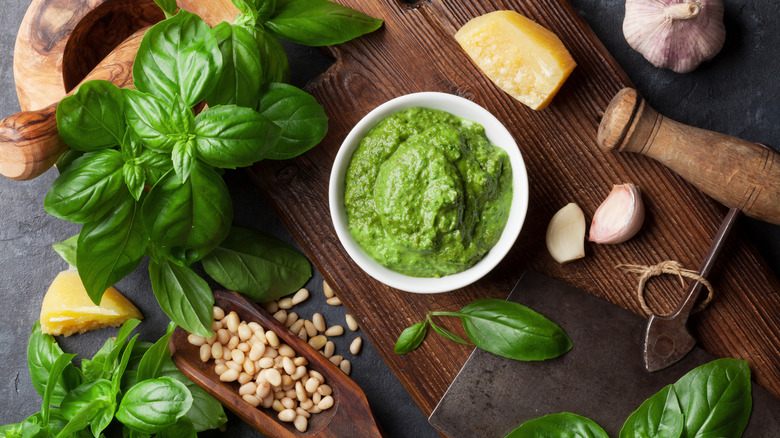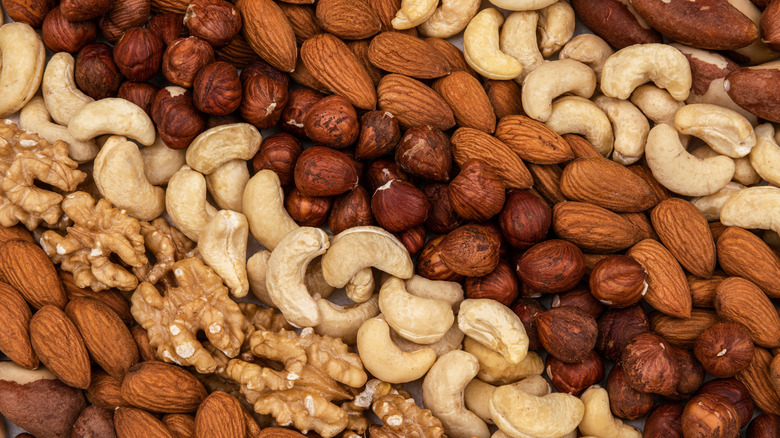Why You Shouldn't Stick To Pine Nuts When Making Pesto
When you think of pesto sauce, you probably think of five main ingredients: basil, garlic, olive oil, parmesan cheese, and pine nuts (via New York Times). However, the recipe for classic pesto lends itself to all kinds of substitutions.
If we are going to get pedantic about making authentic pesto, then pesto must include basil, ideally Genovese basil, according to Saveur. Pesto comes from the Italian region of Liguria and its capital city of Genoa. Authentic "pesto Genovese" requires Genovese basil, the production of which is highly regulated as it has been designated as an official product of protected origin (DOP).
Written in 1863 by Giovanni Battista Ratto, the earliest recipe for pesto calls for basil and pine nuts, but, as Saveur notes, other early recipes omit the latter. In fact, walnuts are a far more abundant crop in Italy than pine nuts, making them a much more practical choice for Italians. Truth be told, there are very good reasons for replacing pine nuts with walnuts, pumpkin seeds, or other types of nuts.
Why using pine nuts may actually be a bad idea
Let's be blunt: Pine nuts ain't cheap. There are a number of reasons for this, according to Today. Harvesting pine nuts is a labor intensive skill that requires months of training to master. Also, demand far outstrips supply. Farmers can plant more trees to meet demand, but the trees that produce pine nuts take at least a decade to reach the required level of maturity.
Another reason for choosing a different kind of nut is sustainability. The global demand for pine nuts is so great that suppliers have increasingly been sourcing less costly varieties from Eastern Russia and Korea, according to Ultrecht University.
Unfortunately, the Russian trees that produce pine nuts are a keystone species — a vital part of the ecosystem they inhabit. Black bears, birds, chipmunks, and other species rely on pine nuts to get them through the cold winters. In Korea, commercial scale harvesting of pine nuts is leading to decreased biodiversity.
If you're looking to save a few bucks and do what's better for the environment, there are a number of alternatives out there — many of which are backed by celebrity chefs. Andrew Zimmern's official website offers a spin on pesto that uses roasted pumpkin seeds. Chef Jean-Pierre has a pesto recipe that recommends blanched almonds or macadamia nuts.
So, the next time you're looking to make pesto, embrace your inner chef and take a pass on the pine nuts.

